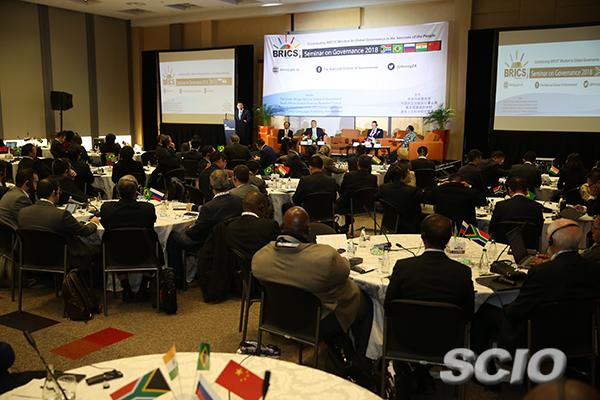

BRICS members could use good governance to alleviate social ills, including grinding poverty and inequality between the rich and the poor, according to experts speaking to Xinhua.
BRICS is an acronym for the grouping of the world's leading emerging economies, namely Brazil, Russia, India, China and South Africa.

Speaking to Xinhua on the sidelines of the BRICS Seminar on Governance held in Johannesburg on Wednesday, Wang Gangyi, deputy director of the China Foreign Languages Publishing Administration, said BRICS members could utilize governance to improve ordinary people's lives.
"The subject of governance is very important to the components of BRICS," he said. "Each country faces its own problems and you need to use governance to take care of people."
"These exchanges we are involved in are very important," he said. "For instance, we need to use governance to find out as to how we can reduce poverty, how can we narrow income gap and to ensure that people benefit and develop."
The director of the School of Leadership at the University of Johannesburg, Sydney Mufamadi, said that governance should be prioritized in addressing challenges of development.
Of all manners of crises facing humanity today, quite clearly the issue of governance has once more to be top most on the agenda, said Mufamadi.
"A forum like this can be used to enable us to learn from one another given that we are part of the world," he said.
Mufamadi said that governance should be effective in tackling all the financial problems created by Western financial institutions decades ago.
"The challenges facing the world today are as a result of these intermittent crises in the area of development," he said. "This goes back to the period of structural adjustments of programs in Africa in the 80s which caused de-industrialization and untold suffering."
He added that BRICS nations need to "spend time reflecting on issues of political governance without telling one another how we should run our domestic affairs."

